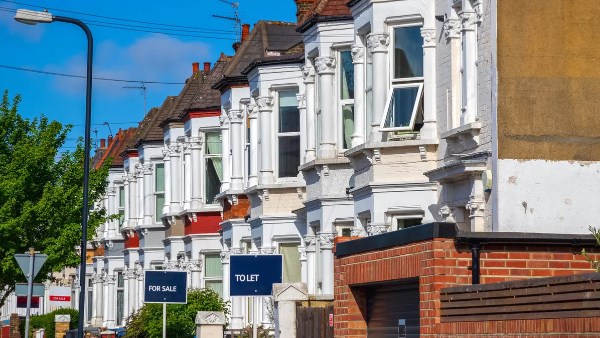
Sweden’s Free-Falling Property Market Triggers Worst Economic Slump in EU

Soaring inflation and rising borrowing costs have sent housing prices on a steep downward trajectory across the world, but one of the places where this trend is playing out the fastest is Sweden.
After a decades-long property boom fueled by cheap credit, a shortage of housing and interest-only mortgages, the Nordic region’s largest economy is now in the midst of a sharp housing market contraction that threatens to deepen a looming economic slump.
Home prices are down as much as 12% from their peak earlier this year when adjusted for seasonal variations — or as much as 15% in nominal terms. The plunge is happening so quickly that real-world declines could exceed the 20% drop anticipated by forecasters.
The market is undergoing “a dramatic change,” said Annika Winsth, chief economist at Nordea Bank Abp.
The double whammy of mounting costs of living and falling home values is pushing consumers to watch their spending, which is in turn creating even more economic pain. Sweden is now at risk of falling into the worst recession among the 27 economies that make up the European Union.
The Nordic country isn’t alone in its housing woes. After booming during the pandemic, central bank rate hikes have triggered a fall in global property values. A handful of formerly frothy markets, including in Canada, Australia and New Zealand, are in the midst of declines, and more than a dozen developed economies are either in a real-estate downturn — defined as two consecutive quarters of falling prices — or about to sink into one.
To Swedes, the situation is especially striking as recent corrections have been shallow and short-lived, and many young home buyers have never experienced a crash.
Real estate professionals are also adapting to this more modest environment. In Stockholm, where a regulated rental market means that applicants must sometimes wait as long as a decade to get an apartment — prompting many would-be renters to become buyers instead — realtor Emma Holst says deal-making has slowed considerably.
“You don’t sell every property after the first viewing, as it used to be,” said Holst, who works at Lansforsakringar Fastighetsformedling in central Stockholm.
Sweden’s once-hot market
Nearly real-time data provided by Booli, a property listing site run by mortgage lender SBAB, offers another look at the extent to which Sweden’s once-hot market has cooled. In general, ads now stay on the site for twice as long as they did a year ago. Detached houses in Stockholm were listed for an average of 40 days in November, up from 15 days a year earlier. In the country’s southernmost Skane region, listing times increased to 53 days, up from 18 a year prior.
While many countries in the EU are struggling with similar problems, Sweden’s housing market is among the most vulnerable. Roughly 64% of people in the nation of 10 million own their homes, yet most don’t have long-term fixed-rate mortgages, making them sensitive to interest-rate changes. “Monetary policy has a faster pass-through here than in other economies,” said Maria Wallin Fredholm, an economist at Swedbank AB.
After a series of interest rate hikes by Sweden’s central bank, the biggest fear is now that consumer spending will grind to a halt. Household debt amounts to more than 90% of Sweden’s gross domestic product, meaning higher borrowing costs will have a severe impact on consumption. This is already starting to happen: retail sales are plunging and lending growth is waning. There are “no positive signals from the domestic economy, and especially not from households or the housing market,” said Nordea’s Winsth.
Should inflation continue to accelerate, the housing situation may become even more dire. Sweden’s central bank recently speculated that ongoing inflation could force the Riksbank to raise its key interest rate from 2.5% to above 4.5%. If such aggressive tightening were to happen, said Helena Bornevall, a senior economist at Svenska Handelsbanken AB, it could mean an additional 10% decline in property values.
If the housing market collapses, the country’s banks would be relatively well shielded. That’s because lending is based on a borrowers’ capacity to pay off their debts, and Swedes are supported by a generous social welfare system that helps them through unemployment and illness.
The real risk to lenders is commercial real estate, as commercial property lending accounts for between 16% and 36% of major banks’ loan stocks.
For individual borrowers struggling with housing payments, there aren’t many good options, especially since it’s very rare to settle debt on a mortgage in Sweden. A mortgage is “the last thing you stop paying,” said Nordea’s Winsth, noting that people who default carry the designation for the rest of their lives. “It’s not like in parts of the US,” she added, “where you can hand in the keys and walk away.”





-1120252475029447.jpg)















